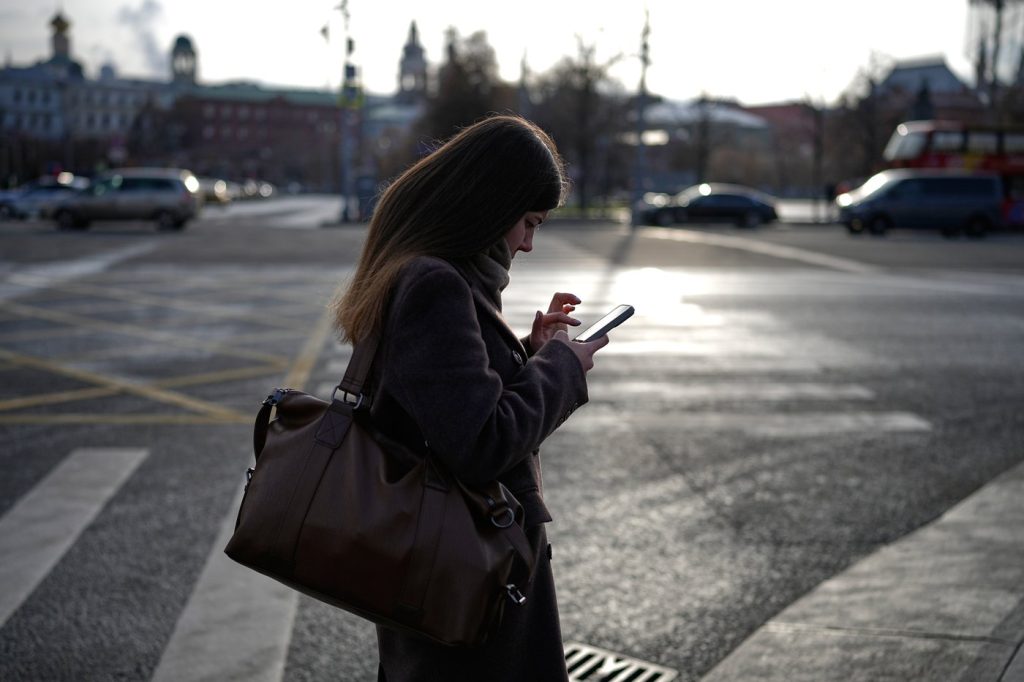TALLINN, Estonia (AP) — In 2025, Russians may remember it as the year their government tightened its grip on the internet. Digital disruptions have entered daily routines, hampering public transport transactions and communication. For instance, credit cards often fail to work on public transport, ATMs remain unresponsive, and popular messaging apps become inaccessible. Moreover, cellphone internet outages prevent parents of diabetic children from monitoring their blood glucose levels, highlighting the severe impact of these disruptions.
The cellphone internet shutdowns began in May 2025, continuing through the summer and into the fall. Reports indicate that in November, 57 Russian regions experienced daily disruptions to cellphone links. According to Russian authorities, these outages aim to disrupt Ukrainian drone operations by blocking mobile networks. Kremlin spokesman Dmitry Peskov insists that these measures are “absolutely justified and necessary,” even as analysts argue they have not effectively mitigated Ukraine's drone strikes.
During these connectivity blackouts, only a limited number of government-approved websites and online services remain accessible. This selective internet access, known as a “white list,” includes official government sites, email services, and the Yandex search engine, while other platforms like WhatsApp and Telegram have faced restrictions. For instance, residents of the Volga River city of Ulyanovsk faced issues when credit cards failed to work on trams due to service outages, leaving them without enough cash for fares.
For families with diabetic children, the situation is especially alarming, as they can no longer track glucose levels through specialized apps during internet blackouts. This means that parents are unable to intervene if their children’s blood sugar levels change while they are at school. In contrast, Russian authorities have attempted to promote a tech-free lifestyle, with posts suggesting that going offline allows for personal reflection. However, these communications have largely met with ridicule and anger on social media.
Additionally, new restrictions now enforce a 24-hour "cooling period" for SIM cards that have been inactive for 72 hours or used abroad, limiting their functionality and creating confusion about their usability in various devices. As noted by lawmaker Andrei Svintsov, the implications of these restrictions extend to essential services, potentially hindering operations of electricity meters and other critical infrastructure.
Messaging apps such as WhatsApp, which boasted 96 million monthly users in October, and Telegram, with 91 million, face relentless throttling and restrictions. In some regions, calls over these platforms became entirely unavailable. Conversely, the government-promoted MAX messaging service is required to be preinstalled on all smartphones in Russia, raising concerns about privacy and user data being shared with authorities. Despite claims of high registration numbers, user engagement on MAX lags far behind that of WhatsApp and Telegram.
Public sentiment toward these internet restrictions appears largely apathetic, with many Russians indifferent or resigned to the challenges posed by the government’s internet policies. Denis Volkov, director of the Levada Center, likens the public’s outlook on these restrictions to their acceptance of weather; it’s an uncontrollable external factor. Many have turned to VPNs to navigate blocked content, though these too are continuously restricted, indicating that access to alternative information is increasingly difficult.
Mikhail Klimarev from the Internet Protection Society articulates that shutting down the internet in its entirety is unfeasible, given its integration into various essential services. He acknowledges that while economic logistics rely heavily on internet connectivity, the government appears to continually devise new ways to tighten its control over digital landscapes, including potentially further blocking popular messaging apps and restricting VPN services.











